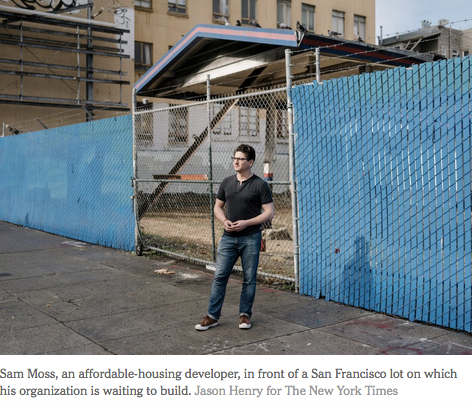SAN FRANCISCO — The tax plan hurtling through Congress is a fast-moving blur of cuts and increases designed to keep Republicans on track to pass a bill without Democratic votes. But here in California, where several prized deductions are at risk of being eliminated, people suspect there is a greater design at play.
“It really does feel like they said, ‘What can we do to California?’” said Sam Moss, executive director of Mission Housing, an affordable-housing developer in San Francisco.
Mr. Moss is worried about the threat to an array of tax credits and tax-exempt bonds that are widely used to build low-cost housing in a state with a severe housing shortage.
And it’s not only the housing incentives. The tax bills are filled with measures that Democrats, and some Republicans, say would have a disproportionate and damaging impact on an overwhelmingly Democratic state that has portrayed itself as the center of resistance to President Trump.
In the sharpest example, state officials estimated that over six million California taxpayers — one of every three — take a deduction for state and local taxes. That is one of the main deductions Republicans are moving to eliminate or severely restrict. The bills would also put a ceiling on a deduction for mortgage interest used by more than four million California taxpayers, according to the State Department of Finance.
The bills would phase out the ability to deduct personal casualty losses from wildfires and earthquakes — a constant threat in vast parts of the state — but keep the deduction for damage from hurricanes and floods like those in Florida and Texas this year.
“I would like to think that this isn’t directly aimed at California, but it’s hard not to think that Congress has their sights set on the Golden State,” said State Senator Mike McGuire, a Democrat whose district includes areas ravaged by the recent wildfires in the north. “No matter if it’s an earthquake, a wildfire or a hurricane, families should be able to deduct the damage.”




